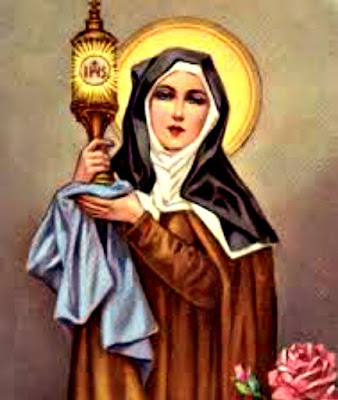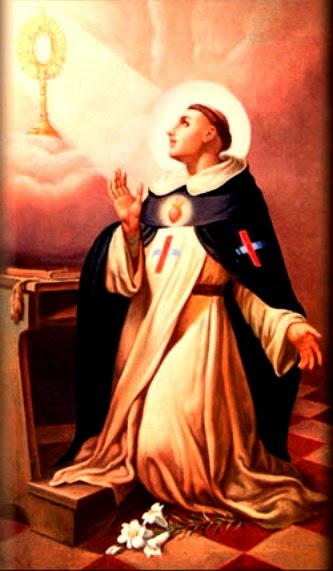St. Gregory of Nyssa
St. Gregory of Nyssa (about 330 -- 395 A.D.) was an early Church Father, who created a rich legacy of theology, liturgy, and spiritual literature.
Gregory was born in Cappadocia, Asia Minor into a deeply religious family and was raised piously. His mother, Emmelia, was a martyr's daughter; two of his brothers, Basil of Cæsarea and Peter of Sebaste, became bishops like himself; his oldest sister, Macrina, is a saint. The younger brother of St. Basil the Great, he was educated by Basil and Macrina, which suggests that their parents died when he was young.
Gregory of Nyssa was married according to his own testimony in his work On Virginity. There exists a letter addressed to him by Gregory of Nazianzen condoling with him on the loss of one Theosebeia, who was most likely his wife. (Historians have differing opinions on this.)
He studied rhetoric, became a professor, and was elected Bishop of Nyssa in 372. He was falsely accused of embezzling church funds and was arrested by the governor of Pontus. He escaped from captivity, but did not return to his See until 378. Shortly after this, Basil died, soon followed by Macrina.
His intellectual gifts, as evidenced in his numerous writings against Arianism and in support of orthodoxy, caused him to become known as the "common mainstay of the Church." He was sent on missions to counter heresy in Palestine and Arabia and he was the chief proponent of the trinitarian doctrine at the First Council of Constantinople in 381, which safeguarded the true humanity as well as the divinity of Christ.
Gregory participated in the second ecumenical Council at Constantinople as a theologian. There, he continued to fight Arianism and reaffirmed the decrees of the Council of Nicaea. The council called him, "Father of the Fathers" because he was widely venerated as the great pillar of orthodoxy and the great opponent of Arianism. However, his theological reflections far surpassed controversy and cathechesis--St. Gregory provides us with the first systematic presentation of Christian doctrine since Origen over 150 years earlier.
Gregory wrote many reflections and commentaries on Scripture, most notably his Life of Moses and homilies on the Lord's Prayer, the Song of Songs, and the Beatitudes. His most important contribution was in the area of spirituality. While his brother gave eastern monasticism its structure and organization, Gregory provided its heart and mystical vision. For this reason he came to be know as "Father of Mysticism."
Gregory of Nyssa died around the year 395 AD and is revered as one of the greatest of the Eastern Church Fathers. He, his brother Basil and their friend St. Gregory of Nazianzen, are known as the Cappadocian Fathers, from the region in modern Turkey from which they came. Gregory of Nyssa is widely regarded as the most substantial thinker and theologian among the three Cappadocians .
St. Gregory of Nyssa Quotes:
"He offered Himself for us, Victim and Sacrifice, and Priest as well, and 'Lamb of God, who takes away the sins of the world.' When did He do this? When He made His own Body food and His own Blood drink for His disciples; for this much is clear enough to anyone, that a sheep cannot be eaten by a man unless its being eaten be preceded by its being slaughtered. This giving of His Body to His disciples for eating clearly indicates that the sacrifice of the Lamb has now been completed."
~ Excerpted from his Sermon on the Interval of Three Days Between the Death and Resurrection of Our Lord Jesus Christ or Sermon on the Resurrection of Christ [381 A.D.]
"If you inquire how divinity is conjoined to humanity, you will have first to inquire as to what the coalescence is of the soul with the flesh. If you do not know the manner by which your soul is united to your body, do not imagine that that other question needs to be understood by you either. . . . Yet the miracles recorded do not permit us to doubt that God was born in the nature of a man."
~ The Great Catechism [383 A.D.], 1031 [11]
"The holy look of virginity is precious indeed in the judgment of all who make purity the test of beauty; but it belongs to those alone whose struggles to gain this object of a noble love are favored and helped by the grace of God."
~ Excerpted from On Virginity, Chapter 1
Listen to Vatican Radio to learn more about St. Gregory of Nyssa in this captivating account of his life.





Comments
Post a Comment
Comments are moderated and are published at the blogger's discretion.